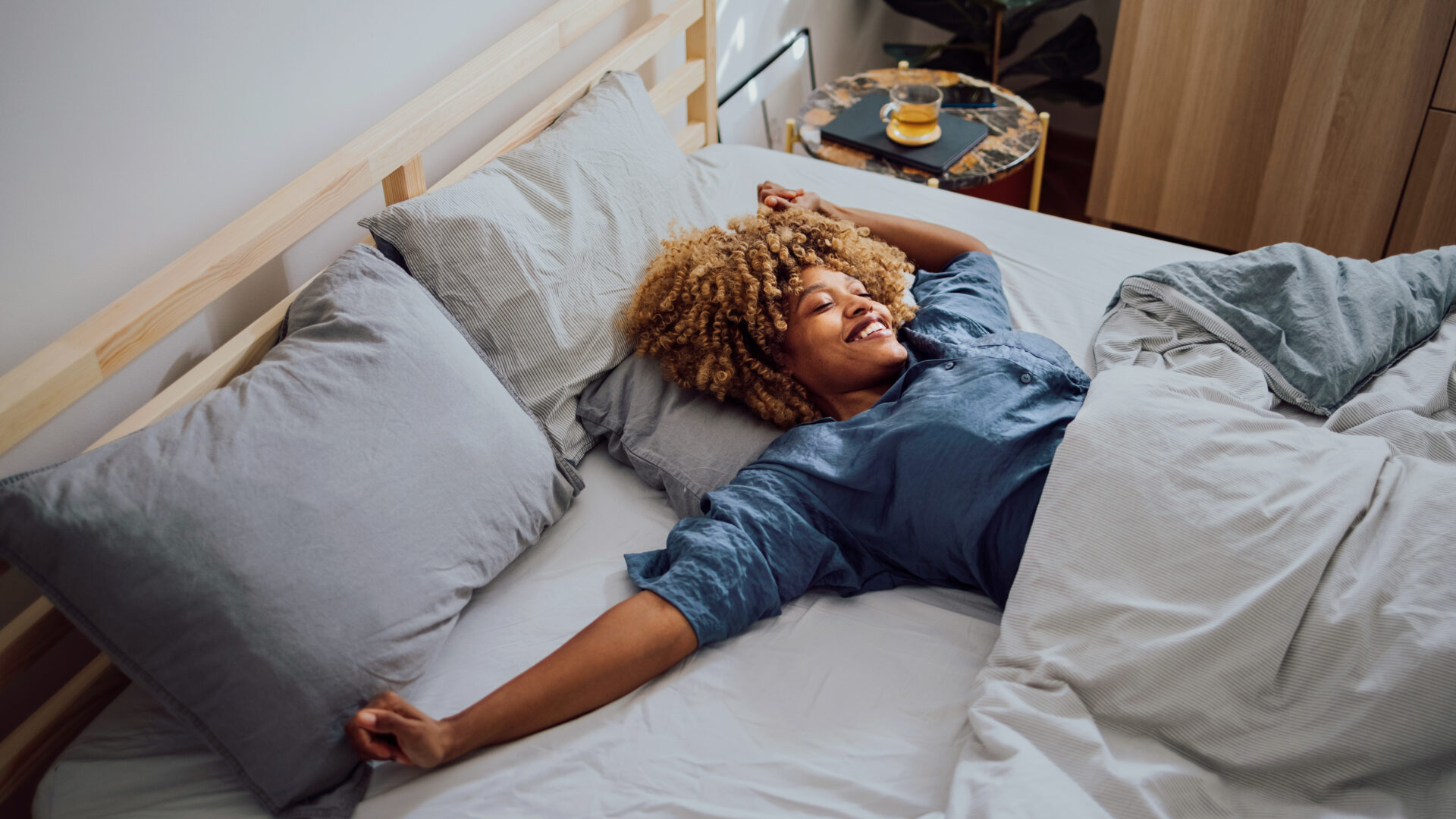
Black women being the champions of their own sexual pleasure is often overshadowed by negative connotations, shame and guilt. However, Gen Z’ers are starting to change the narrative and embrace the blissful buzz of self-pleasure. “I think the narrative came up [about] shaming masturbation because when you can provide your own pleasure, the things you require of the rest of the world look different,” said Goody Howard, a comprehensive sexuality educator. “You move differently when you can provide your own pleasure because there’s a certain self-reliance and self-awareness that comes with [pleasing yourself].”
Sexuality researcher and educator Shemeka Thorpe echoes Howard’s sentiments, adding that women were taught for generations to focus on doing what pleases their partners. In a 2022 study, Thorpe and her colleagues analyzed Black women’s views on self-pleasure. Although 97.1 percent of their participants admit to having masturbated in their lifetimes, only 26.4 percent reported receiving positive messages about the act. Other participants noted receiving negative messages about it, including that the solo act was sinful, ungodly, dirty, unhealthy and more.
Self-pleasure for women is surrounded by sexual and religious shame, preventing many women from exploring their bodies. Thorpe’s 2023 study found that Black men are more likely to engage in self-pleasure than Black women and noted that young women experience a juxtaposition of guilt and pleasure. These battling emotions may cause them to suppress their exploration.
Howard believes that these stigmas showcase “the overwhelming desire for society to humble women.” To the sexologist, each stigma is rooted in patriarchy, religious shame and respectability politics. “If we take that [self-pleasure] away or we shame [it], now you have to rely on someone else for that,” Howard tells GU. “It takes the power out of your hands.”
Read ‘Vitamin G: What To Know When Buying Your First Sex Toy’
Thorpe also attributes the lack of representation in movies, books and television shows to the problem. Television shows like Sex and the City and The Carrie Diaries showcase women prioritizing their own pleasure; however, Black women are often left out of the depiction. The few shows, like Run the World that do showcase that side of Black womanhood are either prematurely canceled or ended years ago. “It’s rare, like when I was younger, to see representations of that,” Thorpe says. “That’s not a thing that you could do as a Black woman because it would be perceived as hypersexual.”
With all of the pre-existing stigmas and shame surrounding self-pleasure, Gen Z’ers are still more open to it than older generations. This generation’s innate nature to push boundaries and ask questions about the logistics of societal norms opens the space for more sexual exploration. Both Howard and Thorpe attribute this inquisitive nature to Millennials’ refusal to perpetuate trauma and willingness to have more open conversations.
Social media and pop culture also play a pivotal role in Gen Z’s sexual freedom. For Howard, social media is integral in the movement, as it helped her educate the latest generation on everything from sexual health to sex toys.
Thorpe believes that female artists encouraging self-pleasure is helping this generation normalize the idea that women should be pleased without guilt. “People have access to more visuals, [and] more lyrics that support the empowerment of masturbation, of women’s orgasms, [and] of pleasure,” she tells GU.
While there have been strides in destigmatizing self-pleasure, more work still needs to be done. Thorpe believes that this generation needs more sexual education spaces for having open and honest conversations. Women often deny themselves the things that give them joy and excitement to cater to others. By allowing themselves smaller pleasures, she believes they can release the guilt associated with self-pleasure. “I consider self-pleasure to be sex with the person you love most in the world,” Howard tells GU. “It just shifts your energy [and] your joy, and I think it’s something Black women deserve.”
About Kayla: Kayla Grant is a multimedia journalist with bylines in Business Insider, Shondaland, theGrio, Oz Magazine, Prism, Rolling Out and more. She writes about culture, books and entertainment news. Follow her on Twitter: @TheKaylaGrant.